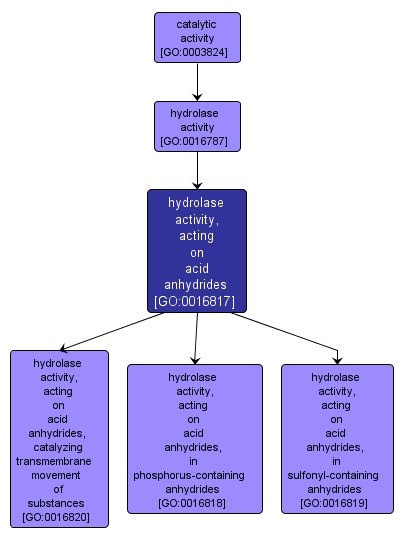GO TERM SUMMARY
|
| Name: |
hydrolase activity, acting on acid anhydrides |
| Acc: |
GO:0016817 |
| Aspect: |
Molecular Function |
| Desc: |
Catalysis of the hydrolysis of any acid anhydride. |
Synonyms:
- hydrolase activity, acting on acid anhydrides, involved in cellular and subcellular movement
|
|

|
INTERACTIVE GO GRAPH
|














